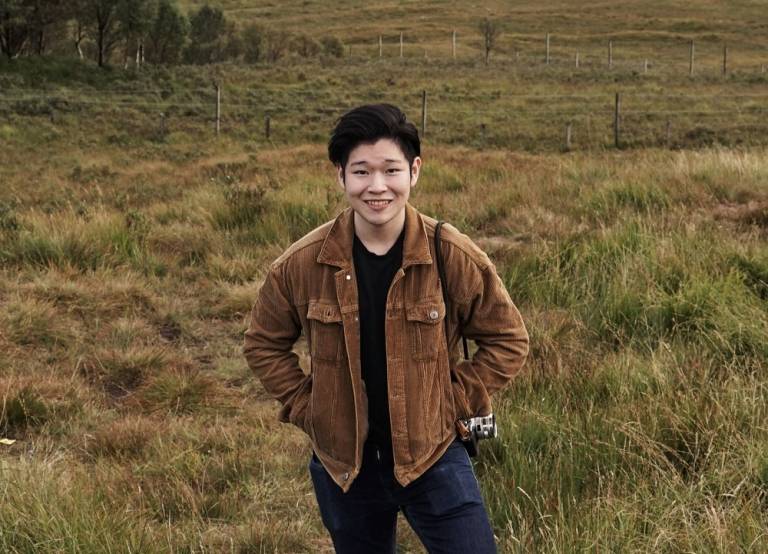Meet Gregorian - he progressed to Architecture BSc at UCL after completing the UPCH in 2018. Find out about his experience of the UPC, studying at the Bartlett and living in London.

What’s your background?
I'm originally from Indonesia. Prior to joining the UPC, I studied at Santa Laurensia Senior High School in South Tangerang, Indonesia. I did the Natural Science and Engineering Pathway of the Indonesian national curriculum, covering subjects such as Physics, Chemistry and Biology.
Why did you choose to study at UCL?
I wanted to study at the Bartlett School of Architecture which is considered as one of the best architecture schools in the world. I thought that the UPC would give me the best chance to progress.
London is one of the most ideal cities to study architecture in; a melting pot of various cultures as a result of it being an extremely diverse and international city. Additionally, populated with both contemporary and historical structures, London is a perfect merger of both worlds.
What course do you study now and what is it like?
I am currently studying Architecture RIBA I BSc in the UCL Bartlett School of Architecture.
The course overall is very intense as well as interesting. We are allowed to pursue our interests and express opinions freely through spatial and architectural exploration within our personal and collaborative work.
My studies in the Bartlett equipped me with a diverse range of skillsets and broaden my perceptions about architecture and its limitless possibilities.
How has the UPC helped you in your undergraduate degree?
The Academic English and Academic Research modules on the UPC helped me to become familiar with writing essays and conducting research in academic English.
Specifically, for the UPC architecture pathway, we had the opportunity to participate in a 1st year undergraduates' Architecture media studies module which was helpful as it allowed us to learn transferable making skills and building connections with other 1st year students.
Additionally, weekly tutorials were held with Bartlett tutors to assist us in developing a design portfolio. Most importantly, the subjects I studied during the UPC enabled me to have a more holistic and interdisciplinary approach to my architecture projects.
What was the biggest challenge you faced during your time on the UPC and how did you overcome it?
The biggest challenge was the steep learning curve to learn something totally different from what I studied in high school, as I took the humanities pathway on the UPC.
Academic essay writing was also quite challenging for me, especially because most of the assignments and assessments on the UPCH are in the form of essays. The UPC is challenging but it is possible to manage and overcome if you put in effort and hard work.
Being far away from home, homesickness was also a challenge for me during my first year in London, which I overcome by joining the Indonesian Society. They later became my family away from home.
What advice would you give to a prospective UPC student?
Firstly, be open minded and welcoming to new experiences because studying in a different country could open a lot of doors for new opportunities.
Secondly, do not be afraid to ask questions or to critique as the tutors are friendly and helpful.
What is it like to live and study in London?
Overall, London is a very international and diverse city - it is easy to meet people from all around the world.
One major difference between my home city - Jakarta - and London, is the mode of travelling around the city. The London transport system is very integrated and connected and the city can also be explored by walking, whilst in Jakarta personal transport is the most convenient way to get around.
What is the most interesting thing you’ve done, seen or got involved with while at UCL?
Throughout my 4 years at UCL, I have joined the Indonesian Society, Baseball Society, ABACUS Society and Volleyball Society. Students' Union UCL offers an extensive range of societies and clubs that could accommodate your interest.
London also has an abundance of art galleries and museums such as Tate Modern, Saatchi Gallery, VNA Museum, Royal Academy of Arts and so much more, which are very interesting to visit. Most galleries and museums are free for general admissions.
How is the UK education system different to your home country?
One major difference of the UK education system is the portion of independent study needed, which requires self-determination and discipline to achieve the best outcome.
The UK education system also emphasises critical thinking; students are prompted to actively critique and question subjects.
 Close
Close

